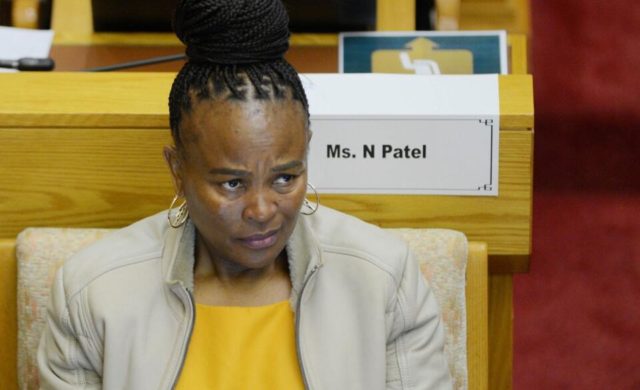Parliament’s Section 194 Committee, in determining suspended Public Protector Busisiwe Mkhwebane’s fitness to hold office, should have due regard for the chilling effect that its decision may have on the effective exercise of the Public Protector’s powers by incumbents to that office.
CAPE TOWN – Parliament’s Section 194 Committee, in determining suspended Public Protector Busisiwe Mkhwebane’s fitness to hold office, should have due regard for the chilling effect that its decision may have on the effective exercise of the Public Protector’s powers by incumbents to that office.
This is according to Constitutional expert Hassen Ebrahim, testifying on the second day of the inquiry into Mkhwebane’s fitness for the position.
“Members of Parliament must subordinate their political interests, and the interests of their parties, to the ‘institutional objectives’ of holding the Public Protector to account and, ultimately, ensuring that the South African public is served as contemplated by section 182 of the Constitution and the PP Act,” he said.
Ebrahim believed that “a particular individual” should not be equated with the office of the Public Protector.
“Section 194 of the Constitution is primarily concerned with protecting the office rather than a particular incumbent.”
He noted that a Public Protector may only be removed from office on any one or more of the grounds of misconduct, incapacity or incompetence.
“The definitions in the removal rules must be applied accordingly. It is up to the committee, at first instance, to determine whether the definitional requirements are met.
“Individual members of the committee may not determine their own definitions for what constitutes ‘incompetence’ or ‘misconduct’. Instead, they must adhere to the ‘institutional pre-determination’ of those concepts as set out in the removal rules,” he added.
Ebrahim provided the inquiry with 47 “checklist” requirements on how the Public Protector should conduct him or herself.
These included that they should “conduct investigations with an open and enquiring mind and follow wherever the evidence leads” and being “the last defence for the public against bureaucratic oppression, corruption and malfeasance – in other words, to protect the public”.
According to Ebrahim, the National Assembly was the decision-maker on the removal from office of the Public Protector.
During cross-examination, Mkhewebane’s legal representative Advocate Dali Mpofu SC, repeatedly asked if the removal process concerned an office, rather than a person.
Ebrahim stuck to his guns, saying “it’s removal of the person”.
He disagreed with Mpofu that the existence of removal grounds were determined by the inquiry.
“All that is required is for the committee to be established to deal with inquiry based on the allegations. The Constitution says the president may suspend a person from office at any time at the start of proceedings.”
Asked whether the Public Protector could extend the scope of her investigation to necessitate a constitutional amendment, Ebrahim disagreed.
“According to the constitutional definition of state organ, there could be no encroachment of powers between organs of state. There could be remedial action. I believe the Public Protector has a right to issue remedial action.”
This prompted Mpofu to ask whether such a remedial action necessitating constitutional amendment amounted to misconduct. Ebrahim said: “I want to steer from the merits of the case. This is not my terrain. It is not within my remit and it is not my brief.”
Whistle-blower and former Sars executive Johann van Loggerenberg is expected to testify on Wednesday.








